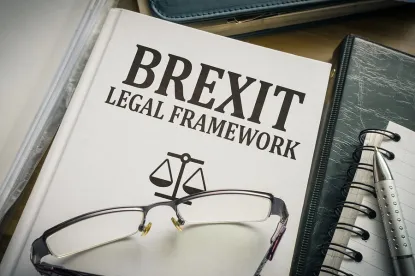On 9 October 2017, the UK Government published its White Paper on the Customs Bill, setting out the government’s approach to legislating for the future customs, VAT and excise regimes post-Brexit. This blog looks at the VAT position.
The paper seems to suggest that the government is now accepting that import VAT will be payable on goods imported from the UK after Brexit. Previously, the government has indicated (in its Future Partnership Paper published in August) that its aim was, rather than having just two categories of domestic supplies and international supplies, to maintain the three categories of supplies currently differentiated under the EU/UK VAT code: (1) domestic supplies; (2) supplies between the UK and the EU27 (i.e. supplies that are currently intra-EU supplies); and (3) other international supplies. The rationale for this aim is laudible and clear: an obligation on importers to fund input VAT (which may be recoverable) is inconsistent with frictionless trade, one of the government’s three guiding strategic objectives. Import VAT, where previously acquisition VAT existed, is a bureaucratic administrative burden for both businesses and HMRC. However, without a deal including changes to both UK legislation and Directive 2006/112/EC this will not be possible. To EU27 countries the UK will be a third country, to the UK the EU27 countries will be third countries. It is unsurprising that maintaining three categories of supplies does not appear to be a likely eventuality, but this will be worrying for both the government and for businesses importing goods from EU countries, which could face the burden of paying VAT upfront, and the additional bureaucracy and friction in international dealings.
There is a surprising amount of detail on the importation of small parcels, including two tables setting out the current VAT (and customs and excise) position for business to business, business to consumer, and consumer to consumer importations. UK businesses are unlikely to be particularly worried about the importation of small parcel; parts used in manufacturing, for example, cars, do not tend to be sent to manufacturers in small parcels. That said, a number of people responded on Twitter to say that for a number of businesses, satisfactorily resolving the position on the VAT treatment of small parcels is of central importance.
There has been no detailed suggestion of how import VAT might work at any border – let alone the Irish border, which is a further area of concern for the government. Avoiding a hard border between Ireland and Northern Ireland is another strategic objective. There is a suggestion that there will be no VAT on personal use items of any value personally imported from the EU (in contrast to those imported from, say, the US, where the limit is £390 on certain goods, and there are limits by quantity of alcohol and tobacco products). This would appear to be a solution to a political problem: tourists returning from France are used to filling up their car boots with wine and cigarettes. But this would appear to give rise to some planning opportunities, e.g. Apple could set up a store just south of the Irish border, and tourists could buy iPads effectively without VAT, by claiming a refund of tax paid on export.
Because the Bill is intended to apply in a range of negotiated (or not) outcomes, including a no deal and a limited deal scenario, it is to a degree necessary for the Bill to give the government “flexibility to deal with VAT on movements of goods and services between the UK and EU”. However, there is a danger that the “appropriate delegated powers” – the so-called Henry VIII powers – could result in taxation without parliamentary scrutiny. Whilst the paper correctly notes that it is usual practice for secondary legislation to set out rules concerning the administration, collection and enforcement of tax, it also subtly pivots to suggest that VAT rules contained in the Bill could go beyond this to allow changes to primary legislation more fundamentally. It is not entirely clear at this stage which parts of the VAT Act the government thinks may need to be changed in a no-deal scenario; as discussed above, the Act already caters for both domestic and non-domestic supplies – which is what EU countries will become to the UK in a no-deal scenario by default.
In one sense, VAT should be a straightforward area of Brexit, compared to issues such as immigration and aviation (see blog posts passim). On the other, the UK Government appears to be all too well aware of the VAT challenges for individuals and businesses on leaving the EU, even if it still does not have answers to the problems.
Frankie Beetham also contributed to this article.




 />i
/>i
